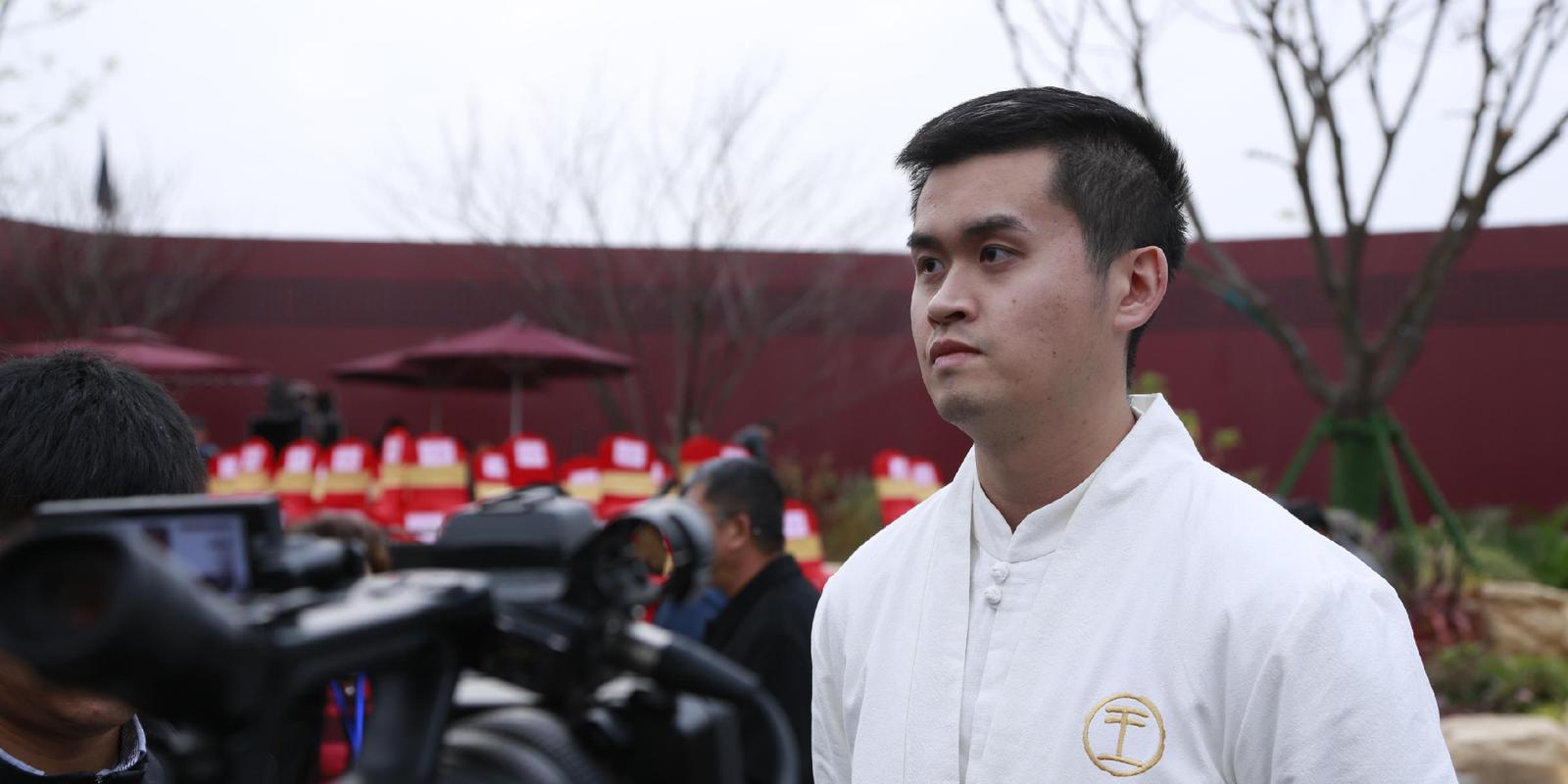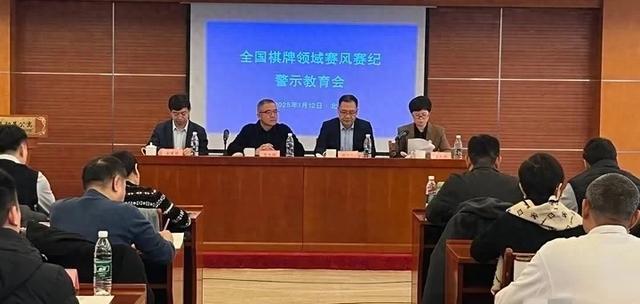Recently, the Chinese chess world has been shaken by the "Recording Gate" incident. As investigations deepen, more violators have been exposed, especially three grandmasters - Zheng Weitong, Zhao XinXin, and Wang Yang. Their lifetime bans have sent shockwaves throughout the chess community. In particular, Zheng Weitong and Zhao XinXin, two chess players who achieved brilliant results on the international stage, have found themselves mired in the mud of their careers due to their involvement in the "buying and selling of chess games" scandal. Zheng Weitong, the 30-year-old world champion, was widely recognized for his superb chess skills and tenacity. He was not only a genius in the chess world but also excelled in many competitions, winning titles such as the Asian Championship and World Championship. However, shockingly, his career came to an abrupt end in the "Recording Gate" incident. Although Zheng Weitong initially denied engaging in the buying and selling of chess games, he eventually had to admit that he did participate in this scandal. The amount involved was not huge, but it was enough to destroy his entire career. His past glory faded instantly under the shadow of the "Recording Gate" incident. Zhao XinXin is another beloved chess player among fans. At just 36 years old, he won the title of China's fifth world chess king. Zhao XinXin's chess skills are universally acknowledged as top-notch, and he won the World Championship in 2018 and the Asian Championship in 2023, representing the "golden age" of Chinese chess. However, behind his success lies a heartbreaking story - long-term involvement in "selling…
Chess Black Market Exposed! Large Cash Flows in the Venue, Teams Raise Funds to Buy Chess Pieces and Manipulate Match Results
Recently, a shocking scandal has rocked the world of Chinese chess. An investigation by the General Administration of Sport has uncovered a significant number of "buy-sell chess" incidents on the chessboard. Simply put, some players deliberately concede or throw matches for their own benefit, even going so far as to "pre-arrange" the outcome of games. This incident has not only disappointed many chess enthusiasts but also raised doubts about the fairness of the entire sports industry. The exposure of this event reveals that it is actually "black money transactions" behind the scenes. "Buy-sell chess" sounds like a plot from a novel, but it is indeed happening on our real-life chessboards. Since 2012, with the increasing professionalization of chess, more and more players have joined the industry. However, no one expected that as the number of competitions increased, the transactions behind the scenes would become increasingly rampant. The "main characters" of the buy-sell chess are no longer just the games themselves, but the players who have undisclosed agreements and interest chains behind them. The investigation shows that some players reach a "tacit understanding" with their opponents before the game: I let you win, and you let me win. These transactions are often related to bonuses, rankings, and promotions. After all, the prize money for chess is not generous, and many players' incomes are not enough to cover living expenses. To maintain their careers, even some well-known players have begun to "trade" match results behind the scenes. In the past, we always thought of chess matches as serious and full of wisdom,…
Chess in China wiped out, brazenly carrying cash for direct transactions, coaches leading the team to raise funds for buying and selling
China's Chess Army Wiped Out, Brazenly Carrying Cash for Direct Transactions, Coaches Leading Teams to Raise Funds for Buying and Selling In a sweeping crackdown, nearly the entire contingent of Chinese chess players has been penalized, with 41 individuals sanctioned for match-fixing through the buying and selling of games. Among them, the top three ranked players in the nation—Wang Tianyi, Zheng Weitong, and Zheng Xin—have all received lifetime bans. Eighteen out of the top 32 players in the country have been punished, which might lead to difficulties in future competitions against Vietnam. It was previously thought that the Chinese national football team was plagued by corruption, but it appears that the world of Chinese chess is even darker. On January 12th, the Chinese Chess Association announced the results of its investigation into the "recording incident," imposing lifetime bans and revoking technical titles from Zhao Xinxin, Wang Yang, and Zheng Weitong. They are now barred from participating in any chess events or activities organized or authorized by the Chinese Chess Association and its member units. Including the additional 38 individuals disciplined and the previously lifetime-banned Wang Tianyi and Wang Yuefei, a significant portion of China's male chess scene has been dismantled. Zhao Xinxin, Wang Yang, and Zheng Weitong were once the faces of Chinese chess. Representing China at the Hangzhou Asian Games, Zheng Weitong even clinched the historic 200th gold medal for the Chinese sports delegation. After his victory, I interviewed Zheng Weitong late into the night, finishing around 1 a.m. He mentioned that Chinese chess had few opportunities to be…
Party Fei Banned for 3 Years: Once Exposed the Xiangqi Recording Scandal, Is It a Self-Involved Game or Seeking Punishment?
On January 12th, Beijing time, the official Chinese Xiangqi Association announced the results of the investigation into the Xiangqi Recording Scandal. A total of 41 players were severely punished for bribery, corruption, and buying/selling games. Among them, 37 were given bans of varying lengths, while 4 were publicly criticized. The most severe penalties were handed to Zhao XinXin, Wang Yang, and Zheng WeiTong, who, like Wang TianYi and Wang YueFei before them, received lifetime bans and had their technical titles revoked by the Chinese Xiangqi Association! Among the list of those punished was Party Fei, which came as a surprise to netizens. Party Fei had previously reported the recording scandal under his real name, submitting a complete 90-minute version of the "Recording Scandal" file to the relevant departments. He expressed his willingness to fully cooperate with investigations and demanded a thorough investigation into the Xiangqi Recording Scandal. Now that the official results have been announced, Party Fei is also on the list of those punished, ultimately receiving a three-year ban. The three-year ban on Party Fei has sparked heated discussion. After all, he had reported the scandal under his real name, demanding a thorough investigation, only to become one of those punished. Is this self-involvement or seeking punishment? Judging from Party Fei's statements at the time of his real-name report, it seems he genuinely wanted to change the corrupt practices in the xiangqi world. He said, "I want to report under my real name, exposing the many chaotic phenomena in the chess world related to the Xiangqi Recording Scandal. I…
41 Chess Players Punished for Gambling, Grandmasters Nearly Wiped Out: Chinese Xiangqi Association: No Tolerance
On January 12th, Beijing time, the results of the Chinese Xiangqi recording incident investigation were announced, with 41 players severely punished for gambling. The official announcement from the Chinese Xiangqi Association stated: "After investigation, it was found that 41 people, including Zhao XinXin, had engaged in various degrees of misconduct such as buying and selling chess games through bribery and corruption, causing serious harm to the development of xiangqi." Notably, Wang TianYi and Wang YueFei were given lifetime bans and had all their titles revoked last September for similar offenses. It's important to note that Chinese Xiangqi is not a mainstream sport within the sports field, yet the number of individuals involved in gambling is surprisingly high, and they are all professional players. This has significantly impacted the development of Chinese Xiangqi. If it weren't for the emergence of the Xiangqi Recording Incident, this situation might have continued for many years before being discovered. Regarding the behavior of buying and selling chess games, which violates the spirit of sports ethics, the Chinese Xiangqi Association has made its stance clear: "Once verified, we will firmly punish and show no tolerance." So what kind of punishment did these 41 gambling-involved players receive? According to the details of the punishment announced by the Chinese Xiangqi Association, almost all grandmasters were wiped out, which can be described as a complete crackdown. Three players, Zhao XinXin, Wang Yang, and Zheng WeiTong, received lifetime bans. Wang Kuo was banned for 7 years and 6 months, Sun YiYang for 7 years, Zhao JinCheng for 6 years, and…




